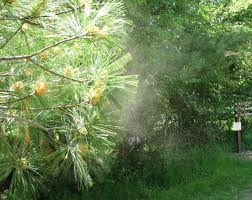_______________________________________________________________________________________________________________________
____________________________________________________________________________________________
____________________________________________________________________________________________
The Magic of Mugwort
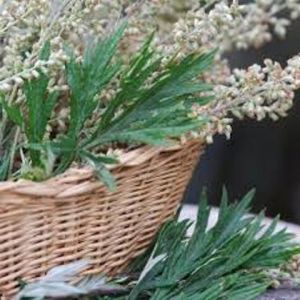
Books and movies about magic and mysticism usually mention the mythical Mugwort plant! Its history is woven into many cultures, but especially the Europeans, for its use in casting out evil spirits that cause disease.
Mugwort's silvery-coloured leaves are reminiscent of the silvery colour of the moon and are a common trait of her family genus, Artemisia, goddess of the moon.
Artemisia is known as the goddess of the hunt, moon, nature and childbirth, representing the beginnings and ending of life. She brings death only when the timing and circumstances are in correct alignment, but she also brings life as mugwort has been used by midwives for assisting in labour and birth for centuries.
A famous herbalist called Maude Grieve suggested the name 'mugwort' originated from being used as either a flavoring agent in beer before hops came around or because the name derives from moughte (moth or maggot) since it was helpful in gardens to ward off moths. Mugwort is also known as cronewort.
"As the village midwife once nurtured the heart of the community with compassion, knowledge, common sense, and magic, cronewort has soothed the pain of childbirth, eased the tenderness of aching joints, comforted bellies, and instilled vision among human beings for centuries with her knowing medicine."
- Judith Berger, Herbal Rituals
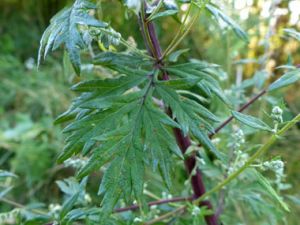
Mugwort has a powerful aroma, indicating the presence of volatile oils produced by the plant as a deterrent to predators. In this way, we can use these volatile oils in the same manner, and in the case of mugwort, to get rid of parasites, particularly in the digestive tract.
Its cousin, wormwood, is known for its powerful ability to rid the body of parasites, hence its name. The gift of mugwort to get rid of parasites probably led to its use in rituals to cleanse bodies and places of unwanted energies. It can be used as incense or to burn the leaves and stems and as a smudge. Dry the plant, burn it and allow the smoke to cleanse your home.
Herbs can be cool, warm, moistening or drying in nature. Mugwort has a warmth when ingested and a bitter taste, making for an excellent digestive aid. The bitter taste stimulates the digestive juices to break down the food, and its warmth dispels gas. This herb is a balm for anyone with weak digestion or nervous dyspepsia (pain and burning, not heartburn)
This is an herb for women that is helpful for stagnant, slow, clotty, crampy, painful menses and has been traditionally used to increase labour and birth. This effect is noticeable in many pungent and/or bitter herbs as it warms the blood, improves its quality, and stimulates the heart. It should not be used by pregnant or lactating women.
People who love to dream and dissect dreams consider mugwort an oneirogen, which means it has the ability to enhance and promote dreams, bringing the sleeper into an REM state. Oneirogen is a Greek word that means "dream" and "to create." Try taking some mugwort before going to bed and keeping a journal to write down any dreams to dissect the following morning. Sweet, magical dreaming!
Mugwort is also great for several skin types and concerns. Mugwort is also excellent for skin concerns and is recommended by dermatologists for eczema, psoriasis, itchy and aging skin. Also beneficial for osteoarthritis! Use in salves, infused oils or liniment for application.
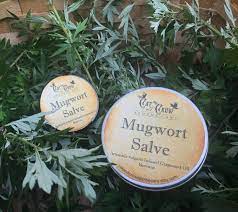
Use mugwort for stress and confusion. It has a mild sedative effect on the nervous system and is commonly used in British herbalism for stress, nervousness, and anxiety. This nervine remedy is warm in nature, which makes it unique, as most nervine herbs are cooling in nature.
Dorothy Hall profiles the Mugwort person as being "highly intelligent with complex thoughts that are difficult to describe, speech disorders and dyslexia, highly elevated senses, sensitivity to light and sound, with great difficulty getting deep sleep. It is suited to people in whom the intuitive, psychic, psychological, creative, and artistic side of the mind is highly developed, but who have trouble with expression or the world around them."
William LeSassier noted that this plant is suited for sensitive women who have been through abuse, poverty, difficult pregnancies, abortions with scar tissue in the womb, and obstetrics. Essentially, mugwort has a restorative effect on the injured female nature.
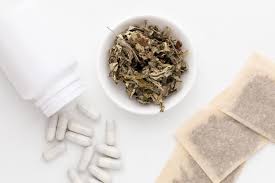
The leaves, blossoms and root of mugwort are the parts generally used. Folk medicine suggests making tinctures, extracts, tonics, teas, powders, and essential oils, most of which you can easily make yourself at home.
Mugwort is not for everyone, especially those with celery, birch, carrot, or Aster family allergic reactions. It certainly should not be used by pregnant or lactating women. As with all herbs, start with small doses and see how you react.
In summary, mugwort is good for digestive disturbances, calms the nerves, helps with female issues, primarily period imbalances and skin problems, clears digestive parasites and reduces osteoarthritis pain. Not to mention its ability to cleanse spaces and produce lucid dreaming! An extremely versatile herb to have in one's home apothecary or herbal medicine cabinet.
I love looking at mugwort's silvery leaves as they blow in the soft breezes and her pretty small flowers. Looking at this apparently delicate plant, one would not know that it has excellent boundaries and is a gentle warrior at heart.
The mugwort in my garden seems to nod at me each time I pass her, perhaps reminding me that she is here as I gather herbs for the making of medicines.
Mugwort will always be magical to me!
Wendy Murdoch (c)
____________________________________________________________________________________________
____________________________________________________________________________________________





